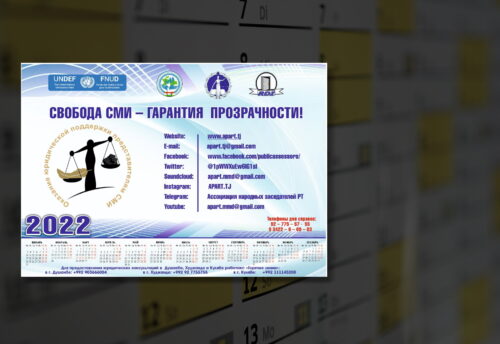Last February, the government instructed the Communications Service to improve the speed and quality of the Internet, but most users continue to complain about the low speed, disproportionately high tariffs, and, in principle, the quality of the Internet.
Why has this order not yet been fulfilled? In fact, the question is rather rhetorical.
And yet we want to recall the reasons for the low speed and poor quality of the Tajik Internet.
This:
Exclusive JCC that can’t handle network congestion
Specialists warned about this even before the ECC was introduced in Tajikistan.
According to the International Telecommunication Union (ITU), if the speed of the incoming international Internet channel in Tajikistan in 2015 was 10 GB / per second, then by the end of 2017 it decreased to 4.15.
Today, according to Ilkhom Atoev, Deputy Head of the Communications Service, the speed of incoming Internet has increased from 70 GB/s to 100 GB/s.
In practice, we see a bad Internet and more and more complaints from citizens.
“Think before you bite, can you swallow?” – Chinese folk wisdom.
In January 2016, by creating the Unified Switching Center (UCC) at Tajiktelecom OJSC (a division of the Communications Service), the state-owned company received the exclusive right to purchase and distribute Internet traffic, thereby putting all mobile operators at a disadvantage.
The monopolization of the market by the only player, Tajiktelecom, which blocked all alternative sources (gateways and IP addresses), has led to the fact that the company is de facto unable to provide high-quality Internet for all users.
By the way, today, according to official data, there are 4.2 million people of these users.
If the Communications Service gave permission to other private companies to purchase and distribute the Internet, then part of the load would fall on the shoulders of new players and competition would improve the quality and reduce prices for the Internet, but this is unlikely to happen, experts are convinced.
To unload the Tajik JCC, a former employee of the Communications Service, Shokhrukh Sharifzoda, suggests that Tajik operators introduce modern terrestrial base stations, parabolic antennas and devices with a signal amplifier function from Elon Musk’s Starlink company in all districts and regions of the republic, since there are no prohibiting laws against their use in Tajikistan .
With the Tajiktelecom UCC, the Internet signal through cables enters the company’s unified database, from where it is distributed to the operators’ antennas and to user devices, as a result, we get an overloaded UCC with the worst Internet for users.
Thanks to Starlink technologies, a direct satellite signal goes directly to the ground base, and from there to the user’s device.
“The prices for such bases are different. For example, for personal use (at home, organization) you can buy a German TRCD satellite base for $18,000 or a Chinese Pianday for $1,200 (the price depends on the coverage area) to use the Internet independent of Tajiktelecom, – explains Shohruh Sharifzoda. – In this case, you will pay $99 per month for 100 GB of Starlink traffic. And a provider company can set up a special base for $4-7 million and provide communications to all its subscribers.”
By the way, Starlink itself is going to start producing consumer equipment and Tesla Phone smartphones, which have the ability to connect directly to this network and use high-speed satellite Internet from anywhere in the world.
At the same time, for smartphone buyers, this network will be available free of charge and without time limits.
Fiscal pressure
In addition to the obligations of mobile operators to OJSC Tajiktelecom, they also have to endure a tax burden consisting of: 18% VAT, 5% excise, 2.5% license fee, 1% turnover tax.
There is also a mandatory payment for room service and other payments.
This does not include the cost of salaries to employees, the maintenance of equipment to improve the quality of communication and the maintenance of building structures of companies, the cost of electricity, housing and communal services and others.
All this affects the pricing of mobile operators’ tariffs.
In addition, operators sometimes simply do not have free funds to purchase new or additional equipment necessary to improve the quality of communication.
Information taken from the website ttps://www.asiaplustj.info/ru/news/tajikistan/society/20220221/v-chyom-beda-tadzhikskogo-interneta.




Leave a Reply